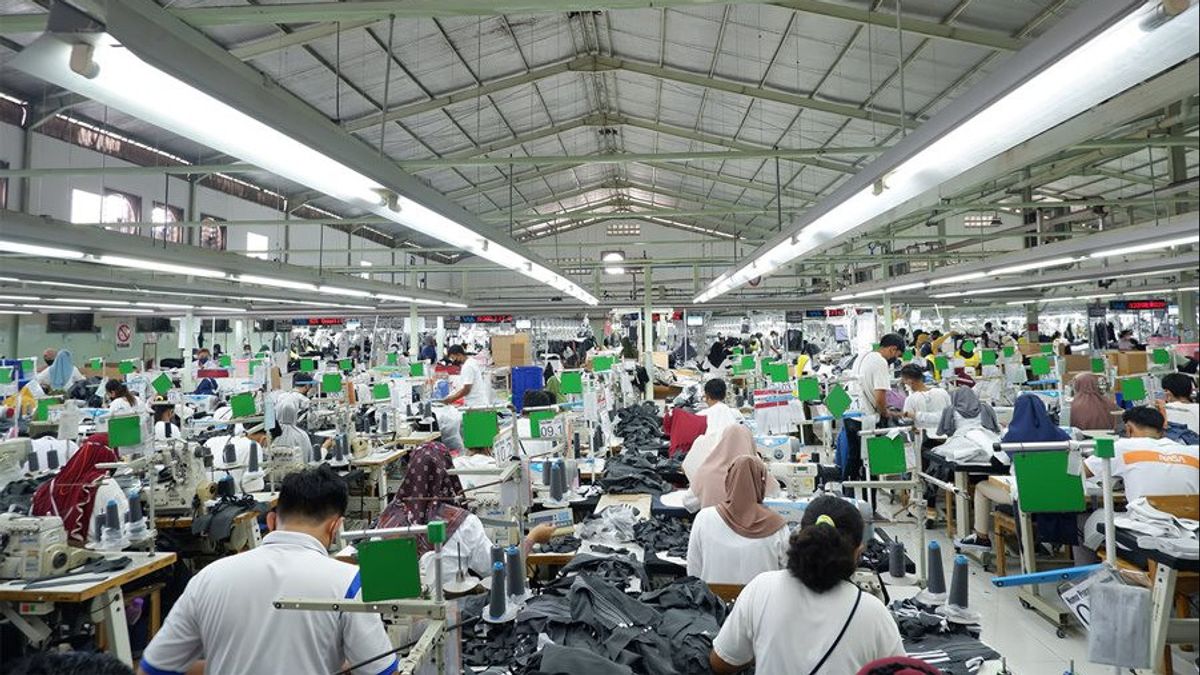The Ministry of Finance (Kemenkeu) welcomes the book Purchasing Managers Index (PMI) of manufacturing which continues to strengthen in the expansion zone (more than 50) to 51.3 in January 2023.
Head of the Fiscal Policy Agency (BKF) of the Ministry of Finance Febrio Kacaribu said that the score grew from the position in December 2022 which was 50.9.
"The manufacturing sector that remains in the expansion zone shows Indonesia's economic resilience is strong amid global turmoil and the slowdown in manufacturing that has occurred in various countries," he said in a press statement, Thursday, February 2.
According to Febrio, the expansionary trend last month was also shown by several neighboring countries in Southeast Asia such as the Philippines 53.5 (December 53.1) and Thailand 54.5 (December 52.5). Meanwhile, Taiwan, Malaysia, Vietnam, South Korea, and the United States are still struggling in the contractive zone (left below 50).
"Output and new demand in Indonesia have experienced the fastest growth in the last three months due to domestic demand that remains strong," he said.
Febrio explained that although export demand was still a bit restrained, the increase in domestic demand was able to encourage companies to increase the purchasing activity of input goods.
Overall, the optimism of business actors in early 2023 increased compared to the end of last year. This is reflected in the increase in input goods stock. In addition, the price of input goods has decreased even though supply disruption is still happening," he said.
Nevertheless, Febrio revealed that producers still anticipate the conditions of world economic uncertainty and extreme weather which are considered to have the potential to hinder the rate of distribution.
Meanwhile, the amount of inflation that continues to decline from 5.51 percent year on year (yoy) in December 2022 to 5.28 percent in January 2023 indicates the smaller the influence of regulated price fluctuations.
"The government continues to anticipate the movement of energy commodity prices and the availability of fuel supplies to ensure the stabilization function of the state budget, namely as a shock absorber in the midst of global conditions that are still volatile," he said.
Febrio added that the government will continue to strive to maintain inflation considering that inflation control is one of the main issues of concern. He said, efforts to control inflation continue to be pursued through various policies, including stabilizing food prices, strengthening domestic supplies and reserves, anticipating price fluctuations due to the risk of weather disturbances, and preparing for the National Religious Holidays (HBKN).
"Synergy and policy mixes at the central and regional levels continue to be carried out with Bank Indonesia to ensure that inflation targets return to the targets set by the Government," closed Febrio.
The English, Chinese, Japanese, Arabic, and French versions are automatically generated by the AI. So there may still be inaccuracies in translating, please always see Indonesian as our main language. (system supported by DigitalSiber.id)












